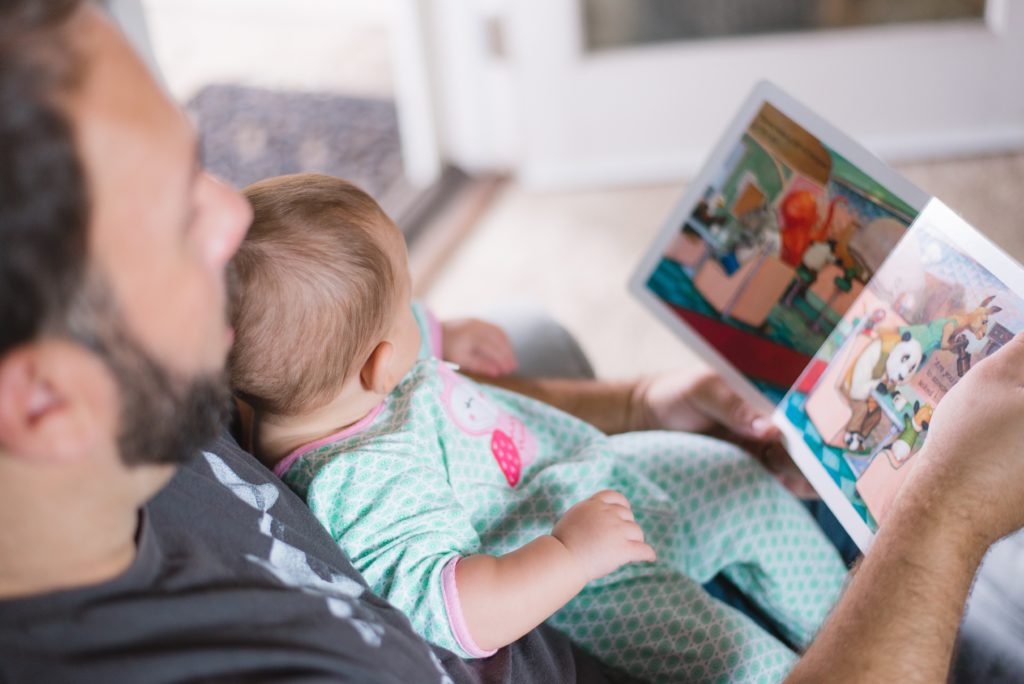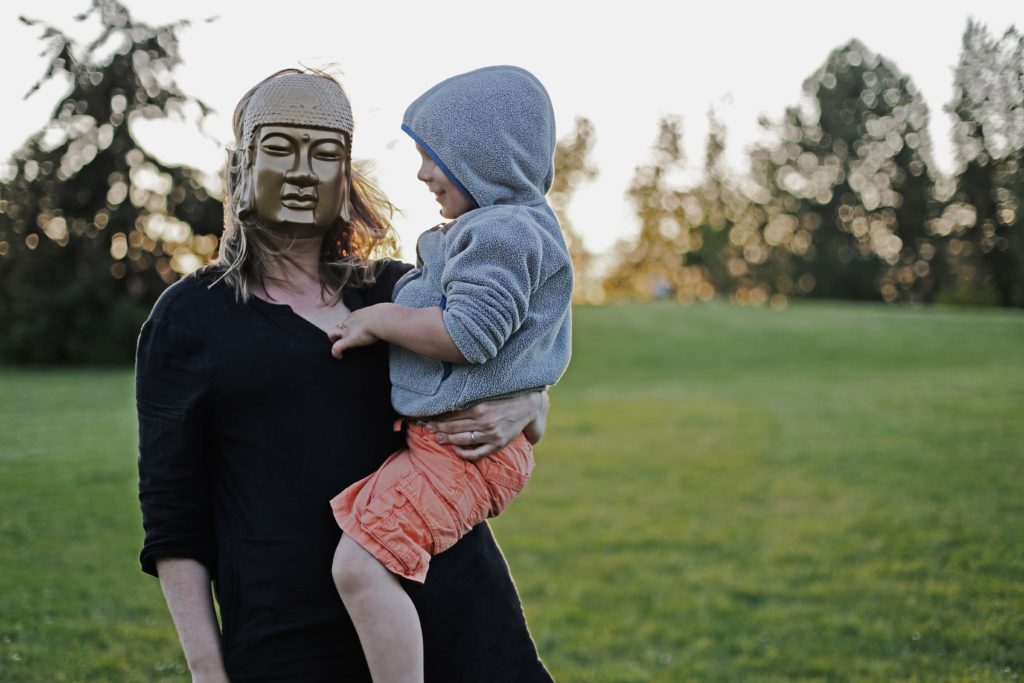![]()
ESTPs genuinely enjoy spending time with their children, and their children will usually enjoy it as well. This type is naturally playful and childlike themselves, and will enjoy exploring the world through their children’s eyes. This may seem like an ideal parent child relationship, but it can have its problems as well.
General Overview
For an ESTP, their children are like another way to explore the world. Through their eyes, the ESTP can see and explore the world anew, go on wonderful adventures in the living room, and generally have the kind of exciting life that they crave. This side of parenting won’t be a struggle for this type, but they may have trouble with other aspects such as discipline, and creating the stable family home that children need to feel happy and healthy.

“For an ESTP, their children are like another way to explore the world. Through their eyes, the ESTP can see and explore the world anew, go on wonderful adventures in the living room, and generally have the kind of exciting life that they crave.”
Photo by Picsea on Unsplash
Household Organization and Discipline
ESTPs don’t enjoy disciplining their children. They don’t like rules or routines, and would prefer to create a supportive environment so their children can work out what they want to do. To this end, an ESTP parent will always be available to play games or sports with their children, but won’t push them to become involved in these kinds of activities. ESTPs need a lot of autonomy in their lives, and they automatically extend this to others as well. Unfortunately, in the case of small children or even older ones, this can be a mistake. Children often need guidance and rules to both feel safe and to make good choices, and ESTPs often struggle to provide these boundaries.
The ESTP and Emotional Support
ESTPs usually struggle to bond emotionally with their children as well. They’re happier to bond through doing activities and having adventures, but may not fully understand that their children have emotional needs as well. ESTPs tend to think of emotions as an irrational waste of time. This is because they’re not very aware of their own emotions, and have trouble understanding the emotions of others as well. The ESTP usually needs to access their tertiary function extraverted feeling to understand others emotions, but their skills in this aren’t developed or very important to them.
So if an ESTP has sensitive children, or those that use a feeling function, this can create a problem and a gap in the lessons they’re teaching their children. If their children are also thinkers, ESTPs will have less problems understanding and relating to them, but they may also neglect their emotional growth and usually need a partner who can take care of that part of their children’s education.
The ESTPs Engagement Level
Most ESTPs genuinely enjoy spending time with their children and will seek them out to alleviate their own boredom, and to have company on adventures. This tendency usually makes them very involved in their children’s lives, and their children usually love having such an involved and exciting parent. An ESTP parent will be the first to read stories to their children and to talk to them about any topic that interests either of them. However, they’ll especially love going out and actually doing things with their children and this will be their first suggestion every time they’re together.

“Most ESTPs genuinely enjoy spending time with their children and will seek them out to alleviate their own boredom, and to have company on adventures.”
Photo by Benjamin Manley on Unsplash
The ESTP and SJ Children
ESTPs don’t usually provide enough structure for their SJ children. They prefer their children to use their own judgement, to try things and keep doing them if they succeed and stop if they fail. ESTPs don’t think of children as lesser in anyway or expect them to obey unthinkingly. For most types, this is a great quality, but for SJ children it can lead to them feeling unsafe or unsupported. SJs have a strong connection to the past, and if their parent doesn’t or can’t supply the kind of guidance and support they associate with the parent child relationship it can leave them feeling lost. This is particularly obvious in older SJ children, but it can also be seen in younger ones. This type requires a lot more guidance than others at every stage of their development and this just isn’t something that ESTPs do or like to do. The ESTP parent will have to work hard with their SJ child in order to provide the sense of stability that they need.
The ESTP and SP Children
An ESTP parent will naturally gravitate to their SP children. Because these types share the extraverted sensing function, it gives them a desire to explore the world and a need for freedom. An ESTP parent will understand what their SP children need to grow and to thrive, and will automatically offer it as they go about their daily lives. This combination of support and freedom will usually encourage their SP children to be bold and creative, as well as independent and open to exploring the world. And they’ll often grow up to be very confident and brave adults.
The ESTP and NF Children

“The NF child may see the ESTP inability to connect emotionally as a kind of abandonment, leaving them feeling insecure and unstable, whereas the ESTP will often dismiss what they see as the NFs over emotional reactions to things.”
Photo by Ksenia Makagonova on Unsplash
ESTPs may struggle to bond with their NF children. ESTPs don’t like emotions very much, and usually don’t understand people who use emotions to make decisions or to connect with others. They prefer to connect through activity, and this can cause a rift in their relationship with their NF children as they grow. The NF child may see this inability to connect emotionally as a kind of abandonment, leaving them feeling insecure and unstable, whereas the ESTP will often dismiss what they see as the NFs over emotional reactions to things. This is a relationship that the ESTP parent must work hard at if they want it to be close and healthy.
The ESTP and NT Children
An ESTP parent will seem like a whirlwind of activity to their NT children and this can be a great thing for this sometimes too thoughtful type. NTs, whether they’re introverted or extraverted, can sometimes be too internally focused or task focused. The ESTPs focus on exploration for its own sake can encourage this type to move beyond their intellectual world and explore the real one, giving them the support they need to feel safe doing so. As a result, this parent child relationship will probably be a bit up and down, but it will also bring unexpected benefits to both parties.
Final Thoughts
ESTPs are fun parents who enjoy seeing the world through their children’s eyes and showing it to them as well. They provide an environment that is always exciting and fun, but sometimes lacks the stability that children need to feel secure. This is something they need to work on as parents and it will probably benefit their own lives as well.
References
- Storm Susan. “Understanding ESTP Sensing“. Mar 7, 2017. (Retrieved Feb 2018).
- Storm Susan. “How You Process Emotions Based on Your Myers-Briggs® Type“. Mar 13, 2017. (Retrieved Feb 2018).
- “ESTP – The Doer“.